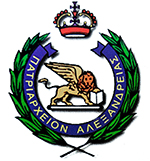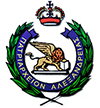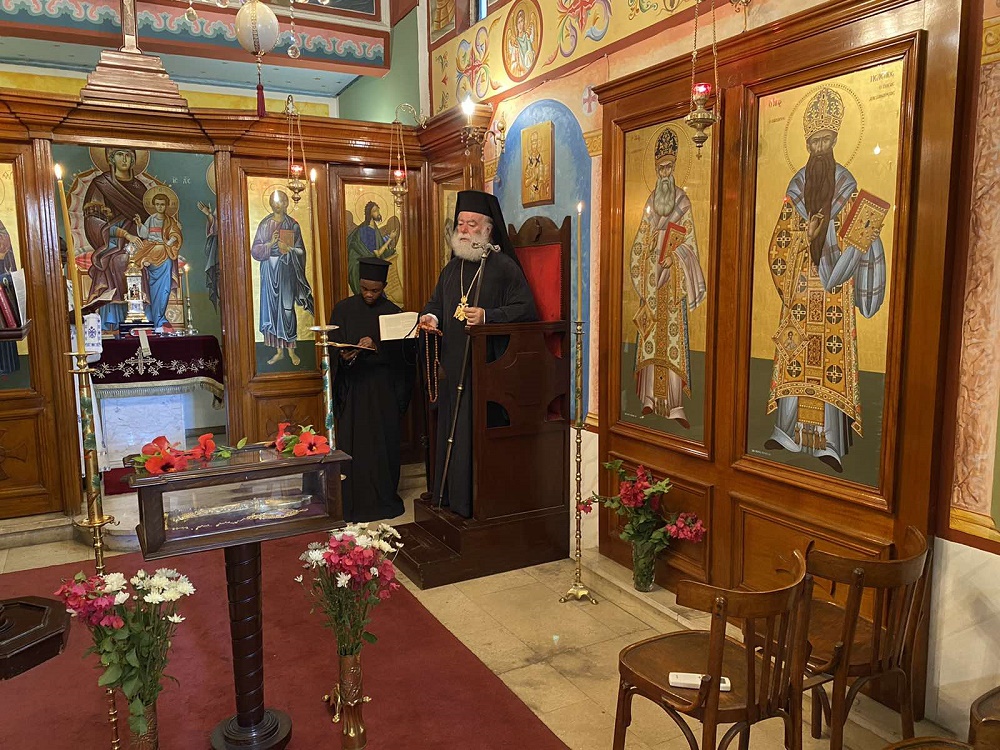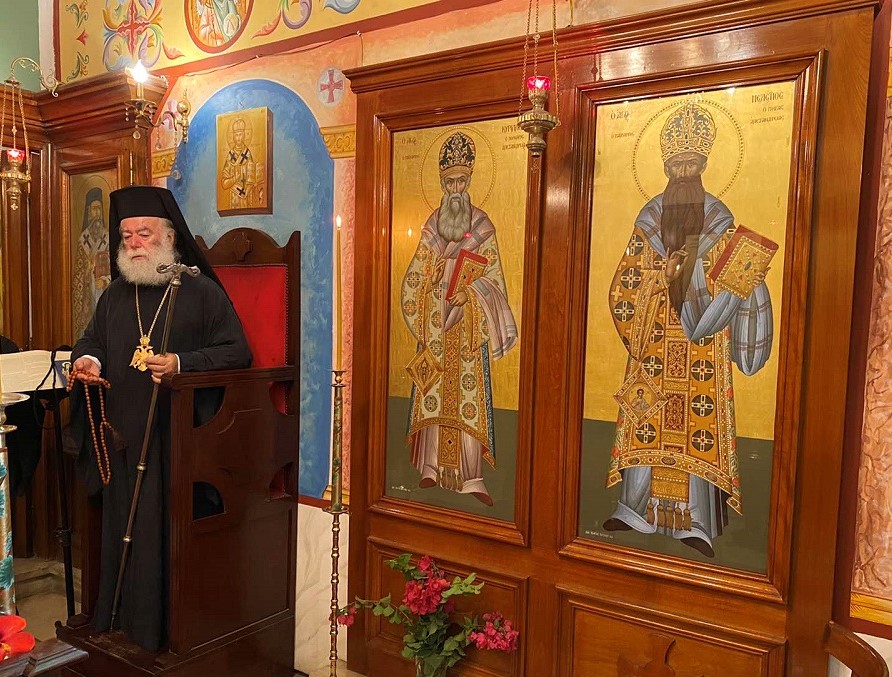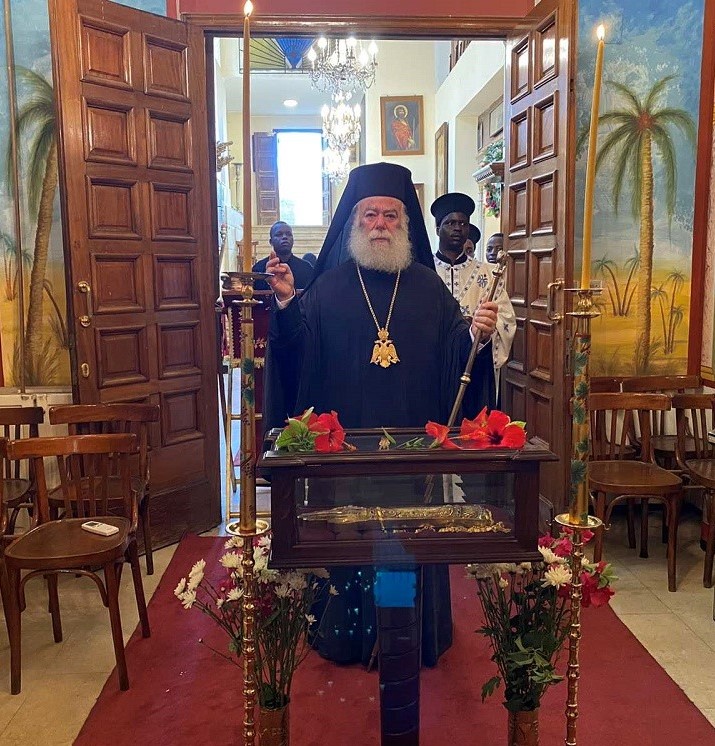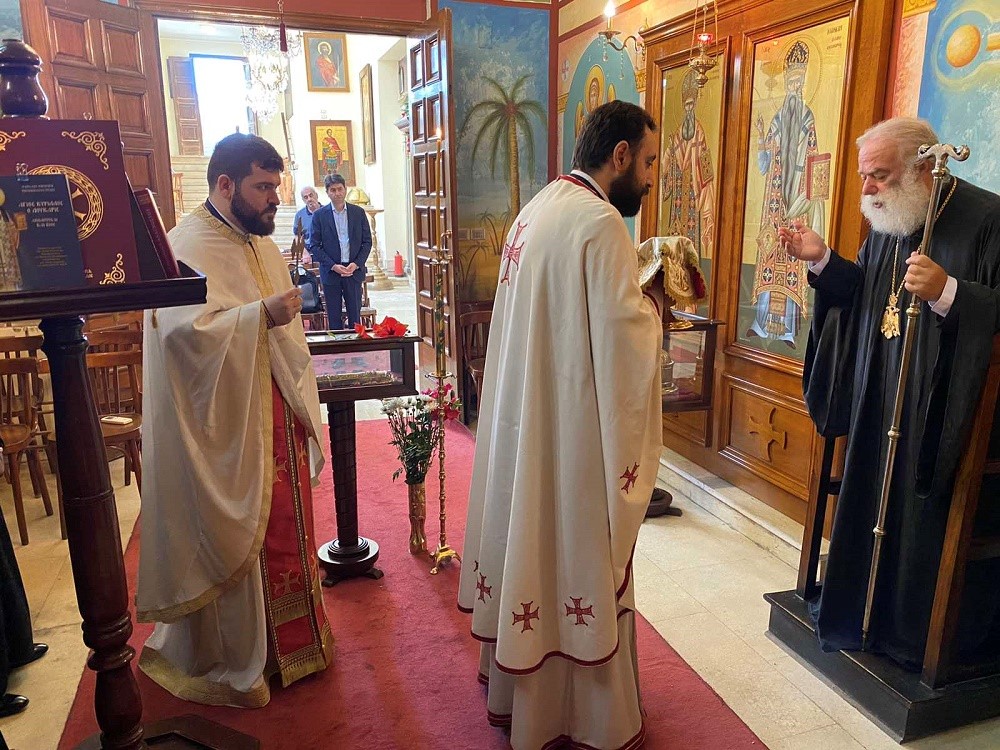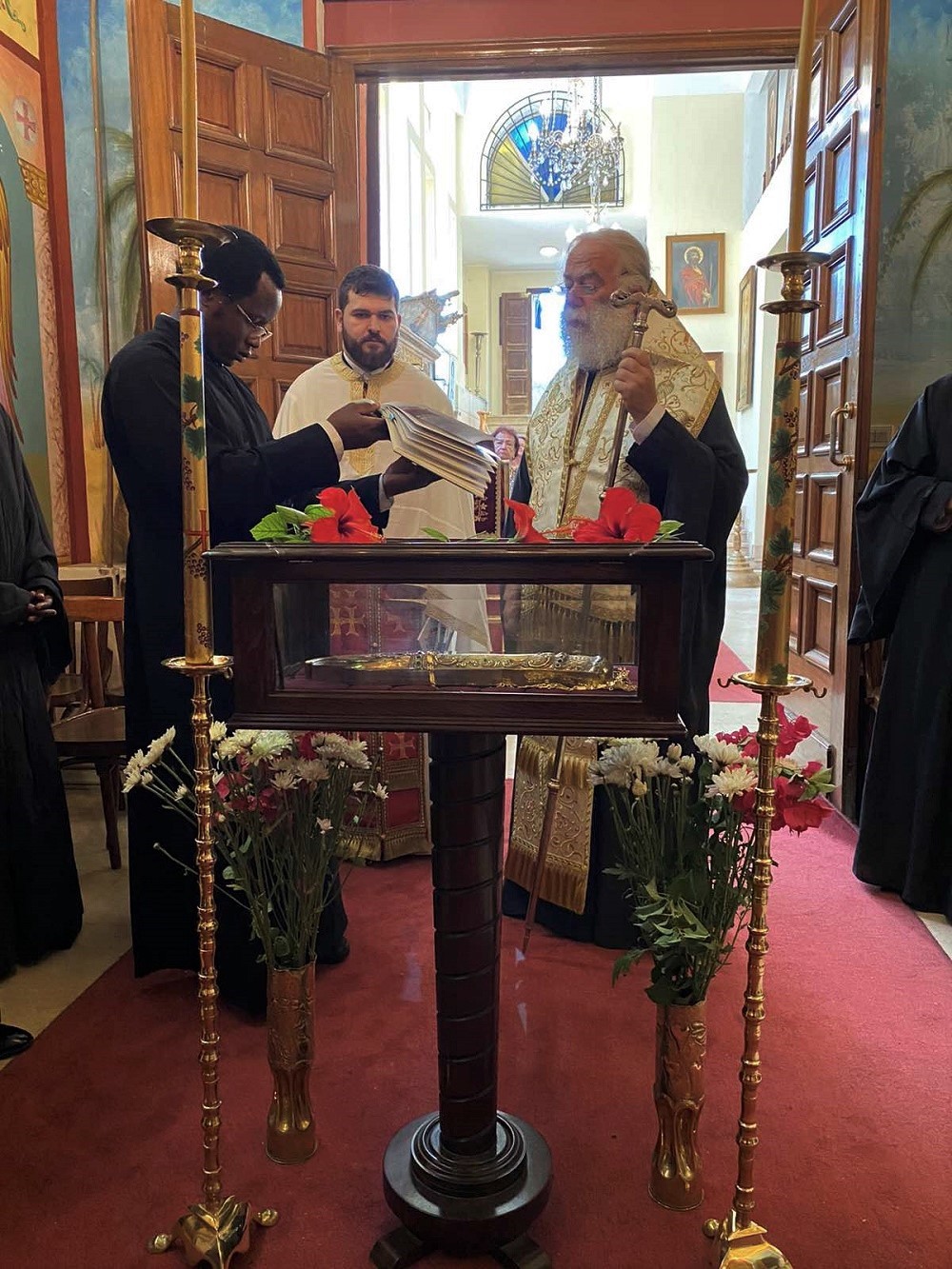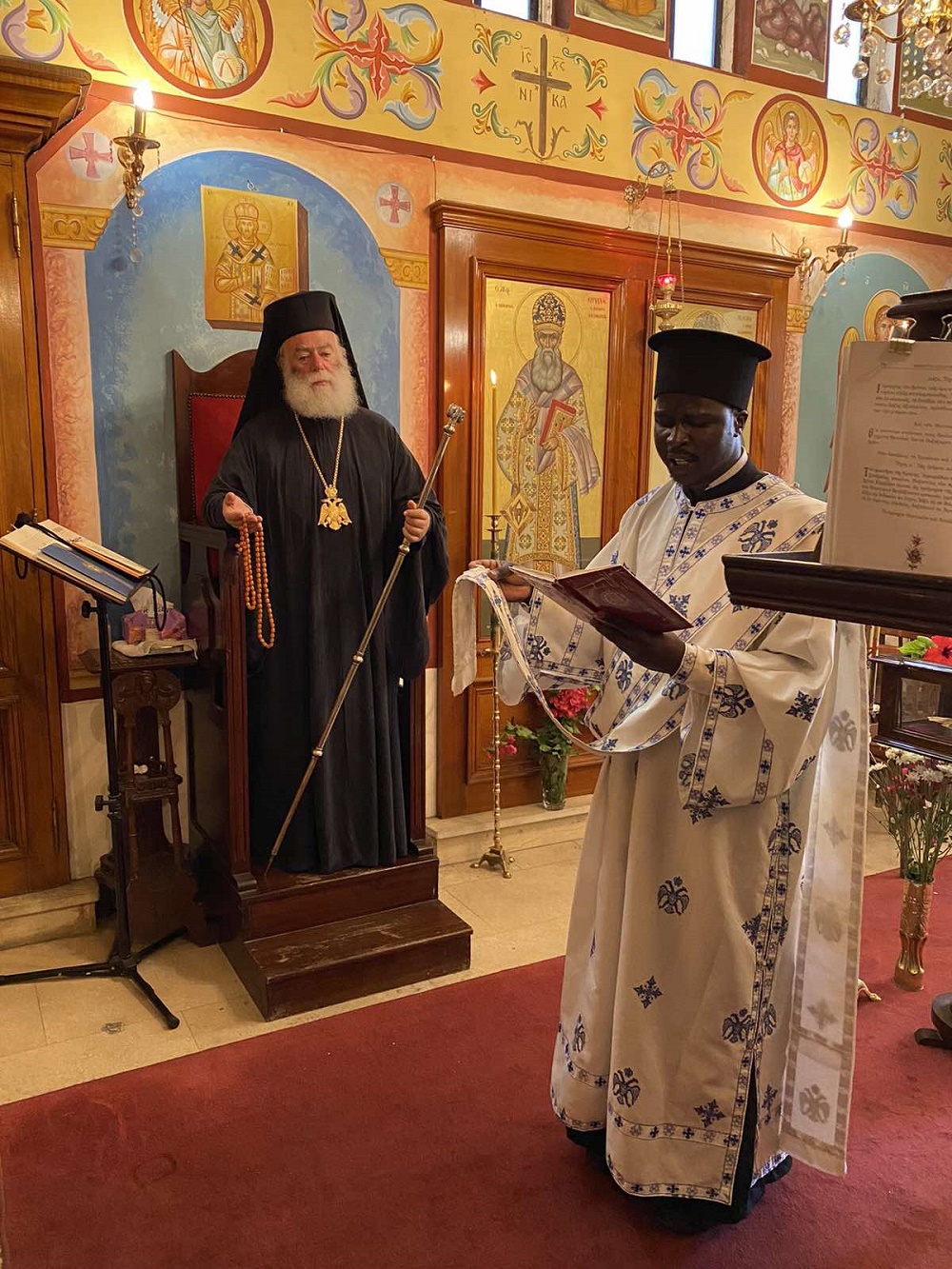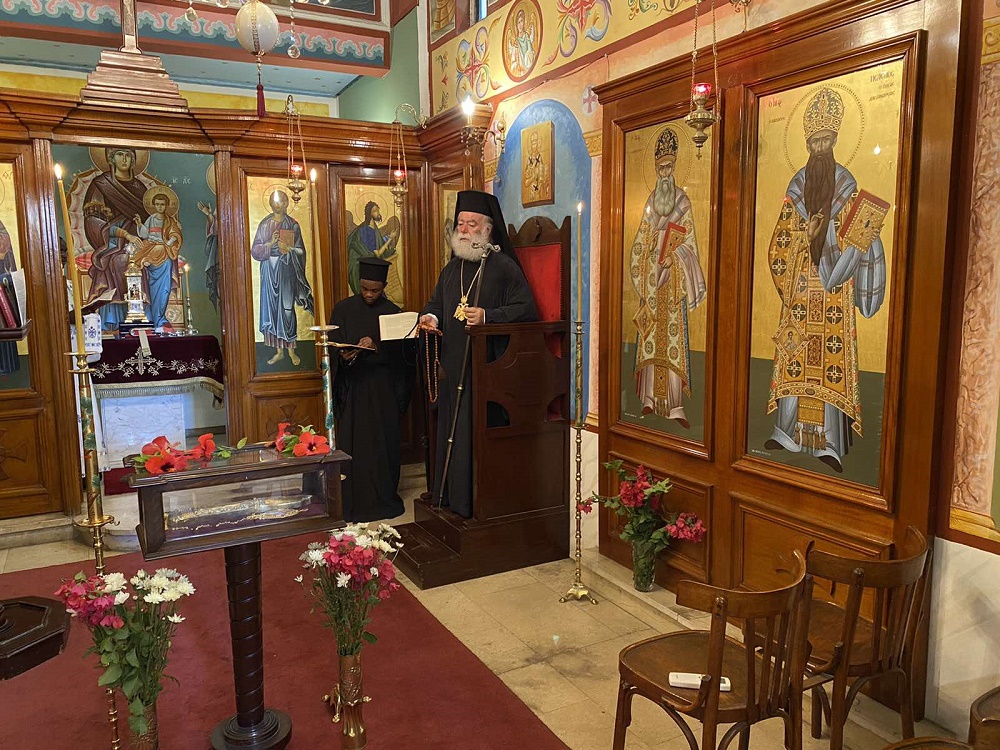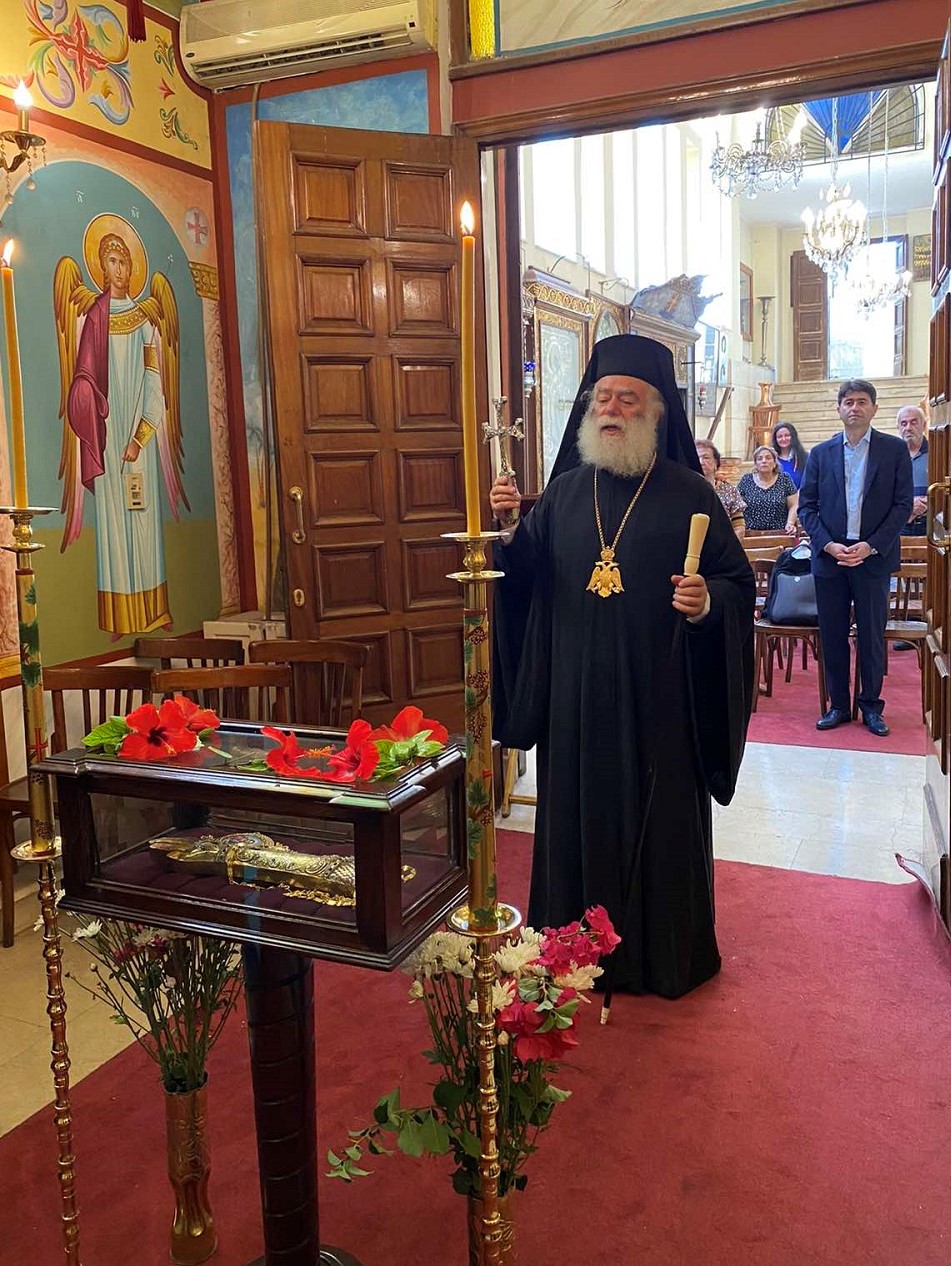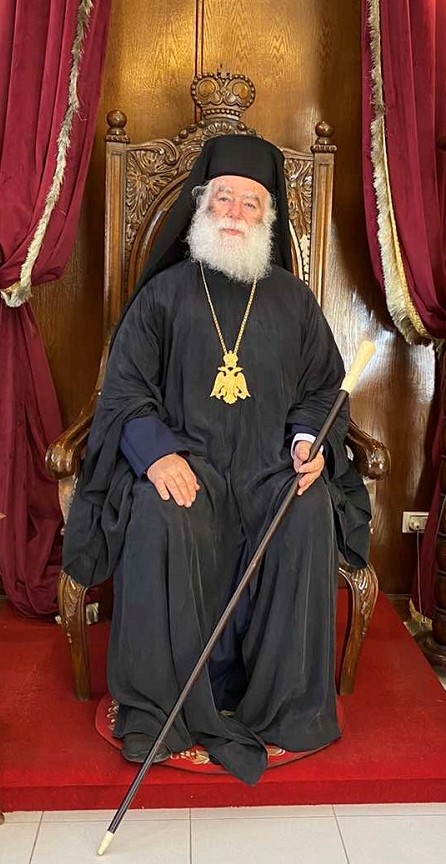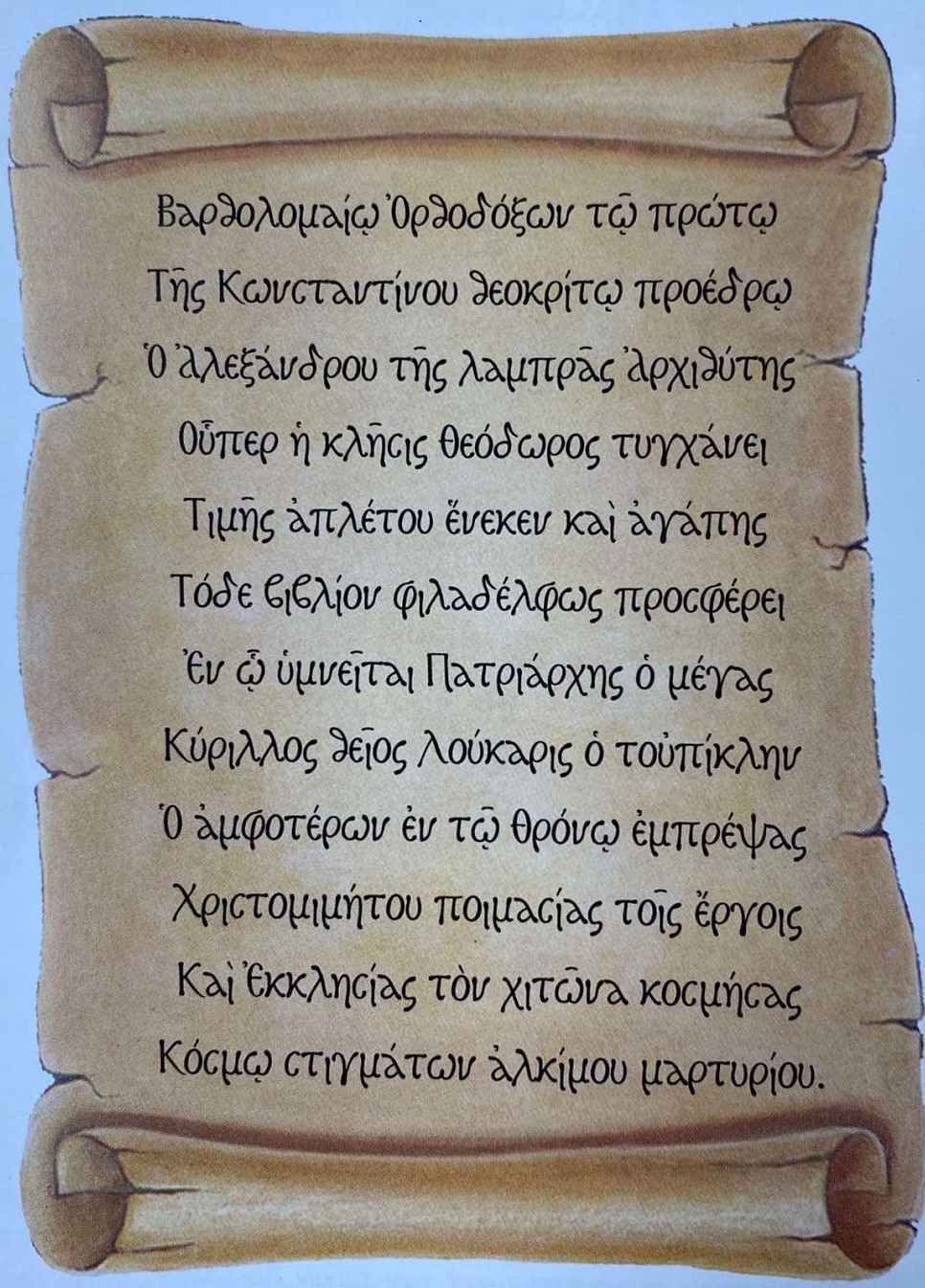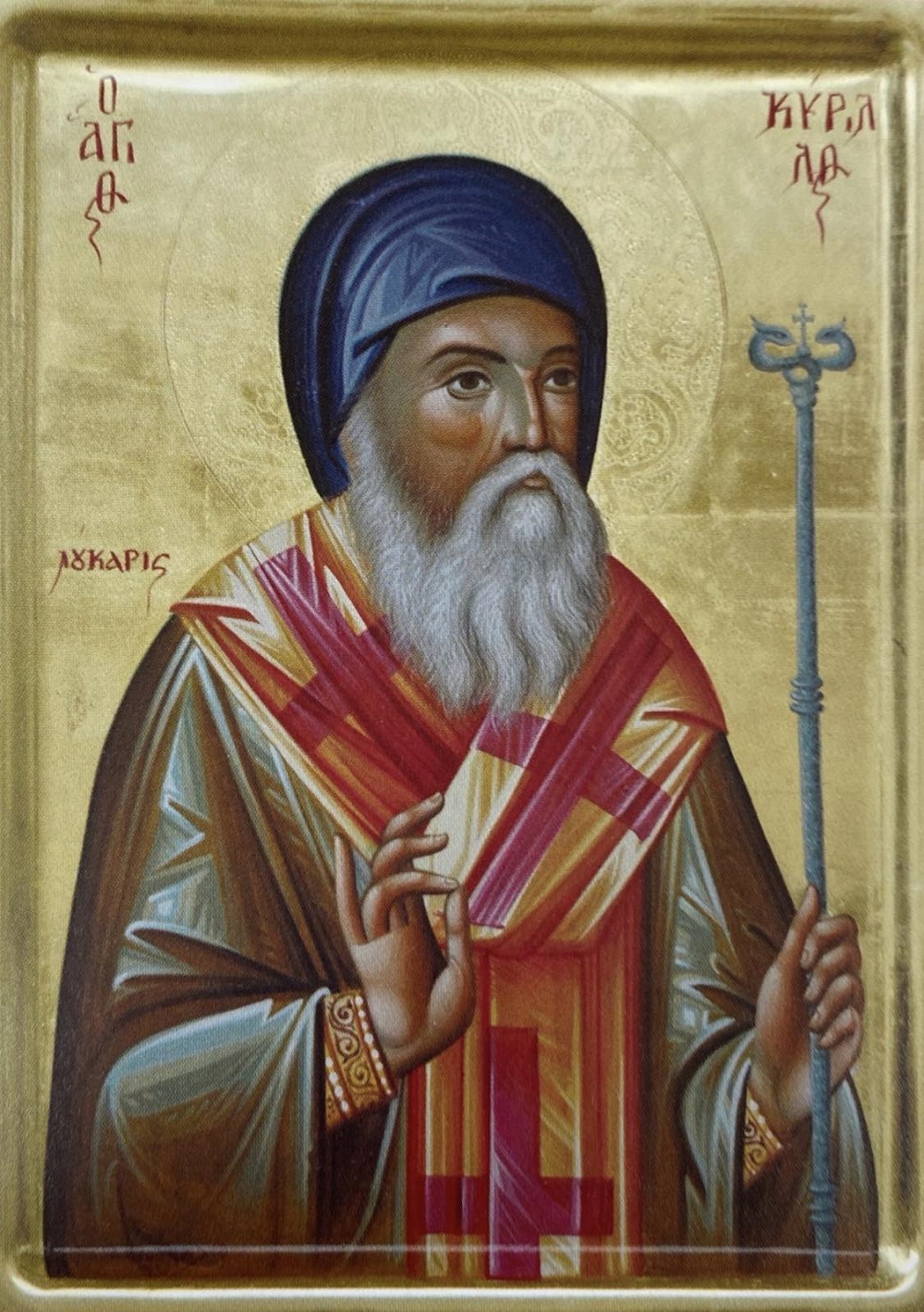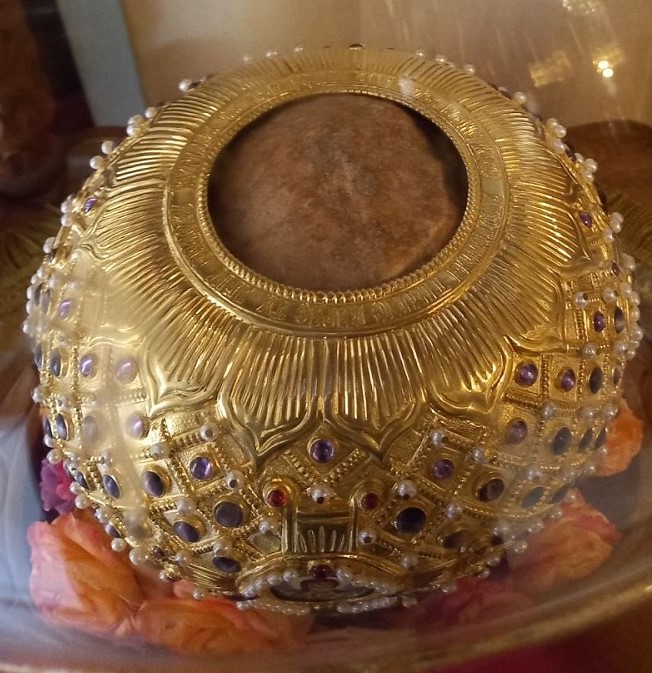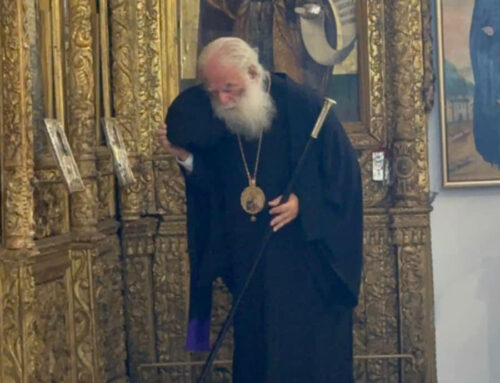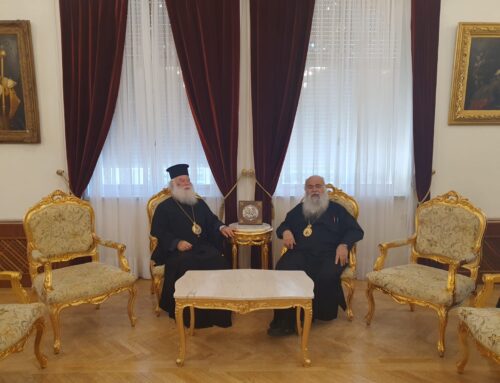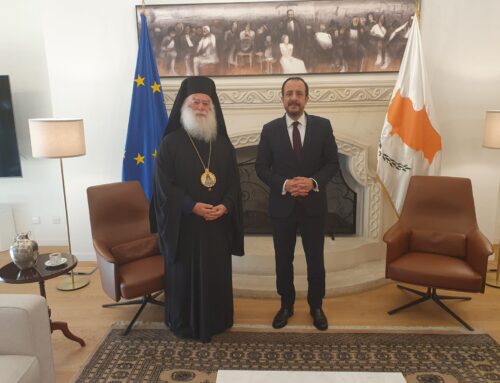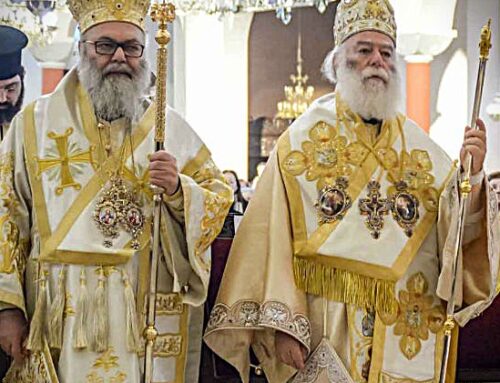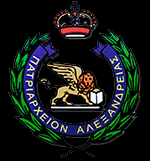On 27th June 2022, His Beatitude Theodoros II, Pope and Patriarch of Alexandria and All Africa officiated at the Divine Liturgy served at the Holy Patriarchal Chapel of St Mark, at the Patriarchal Monastery of St Savvas the Sanctified in Alexandria, on the occasion of the commemoration of St Kyrillos III, Loukaris, Patriarch of Alexandria (1601-1620) and then Ecumenical Patriarch.
Walking in his mind on the historical cobbled streets of the Monastery of his repentance, the historic Monastery of Agarathos from where he began his Ecclesiastical path and on the celebrating Saint, the Patriarch praised the figure of the Great Hierarch of the Orthodox Church, who fought for the preservation of the Orthodox faith in the countries of Ukraine and Poland, fighting against the Unia.
His Beatitude, elsewhere in his speech, referred to the recent decision of the Ecumenical Patriarchate to inscribe in the List of Saints of the Eastern Orthodox Church, the celebrating Saint Hieromartyr Kyrillos Loukaris (January 11, 2022).
Deeply moved, the Primate of the Second Throne and Ancient Patriarchate of Alexandria, expressed his warm thanks to His All-Holiness Bartholomew the Ecumenical Patriarch and the Holy and Sacred Synod of the Great Church of Christ for their decision, while he did not fail to thank His Eminence Emmanuel Metropolitan of Chalcedon for his special contribution to the canonization of St. Cyril.
Brief life history of the Hieromartyr Saint Kyrillos Loukaris
St Kyrillos Loukaris was born in Handaka (Herakleion) in Crete in 1572, was tonsured a monk at the Holy Monastery of Angarathos and received brilliant studies in Venice and Padua. When at age 30 he was elected Patriarch of Alexandria, succeeding Meletios Pegas, he already had a significant path in defending Orthodoxy against the proselytizing activity of the Jesuits in the East.
As Patriarch of Alexandria, he carried out remarkable renovation works, raised money through contributions from Orthodox countries to pay the debts of the Patriarchate, founded and renovated churches, treated the sick and solved the problems of the Churches in Sinai and Cyprus, where he went in person. With the help of the later Patriarch Gerasimos Spartaliotis, he faced the problems caused by the epidemic of 1616 and the persecutions of the Turks.
In 1620, the Patriarch of Constantinople, Timotheos II, passed away and the Synod elected as Ecumenical Patriarch "the virtuous and wise Kyrillos". Loukaris was deposed five times from the Ecumenical Throne and reinstated. In 1627 he bought a printing house, where with the aim of enlightening the Nation, useful didactic texts were published, as well as anti-papal articles, a fact that intensified envy and hatred. Janissaries destroyed the printing house and the Patriarch was rescued through the mediation of the Belgian ambassador, who hid him in his house.
In 1637, the Jesuits, unable to tolerate him, slandered Cyril to the Sultan for inciting the Greeks. He was arrested and imprisoned in the fortress of Laimokopia, where he was strangled on June 27, 1638. His body was thrown into the sea, found by fishermen in the icy waters of Marmara and buried in Nicomedia.
K. Paparrigopoulos wrote in the "History of the Greek Nation": "Never has the office of the Ecumenical Patriarch ever been more brilliant than during the tenure of Kyrillos Loukaris, who served for about twelve years with breaks as patriarch." Indeed, Lucaris tried in every way to elevate the Greek nation. In his actions we see the tendency of Hellenism to come into contact with the West. Like Pegas, Loukaris preached in the demotic language. He even prefaced the translation of the New Testament by Maximos Kallipolitis into the vernacular, emphasizing the importance of the translation of the Gospels for the enlightenment of the flock.
The sacrificer for the Lord is a victim,
strangled by the madness of the descendants of Hagar.
On the 27th, Kyrillos victoriously ventured to heaven.
Through his holy intercessions, O Christ our God, have mercy on us. Amen.


